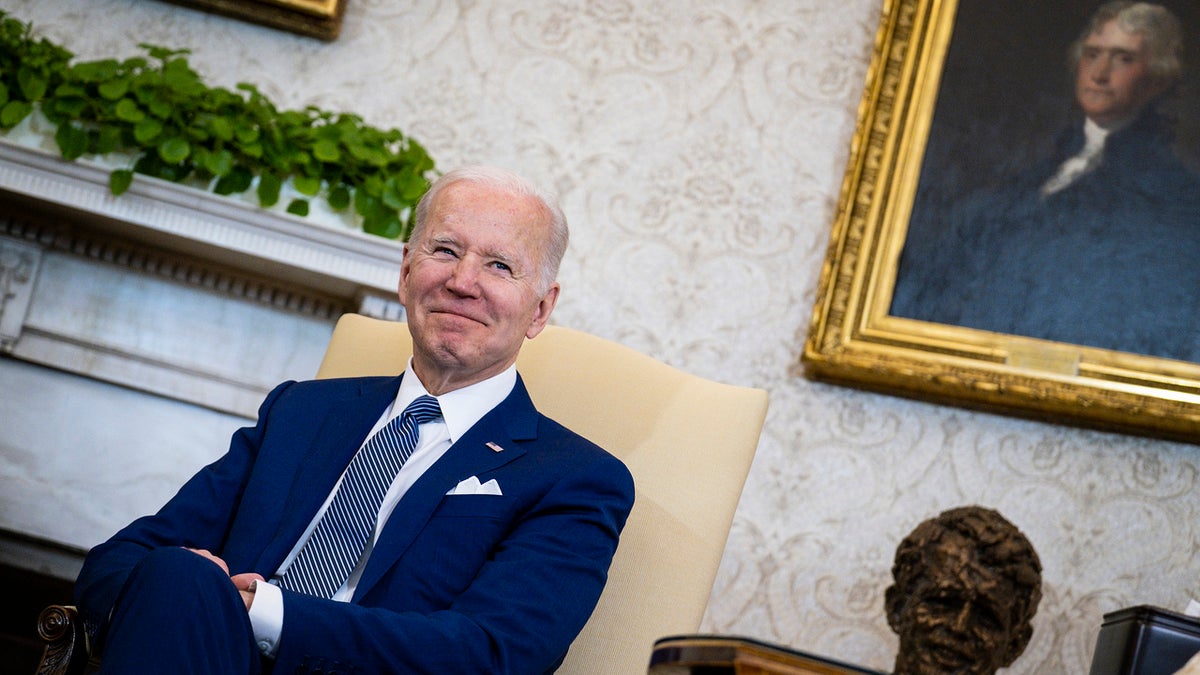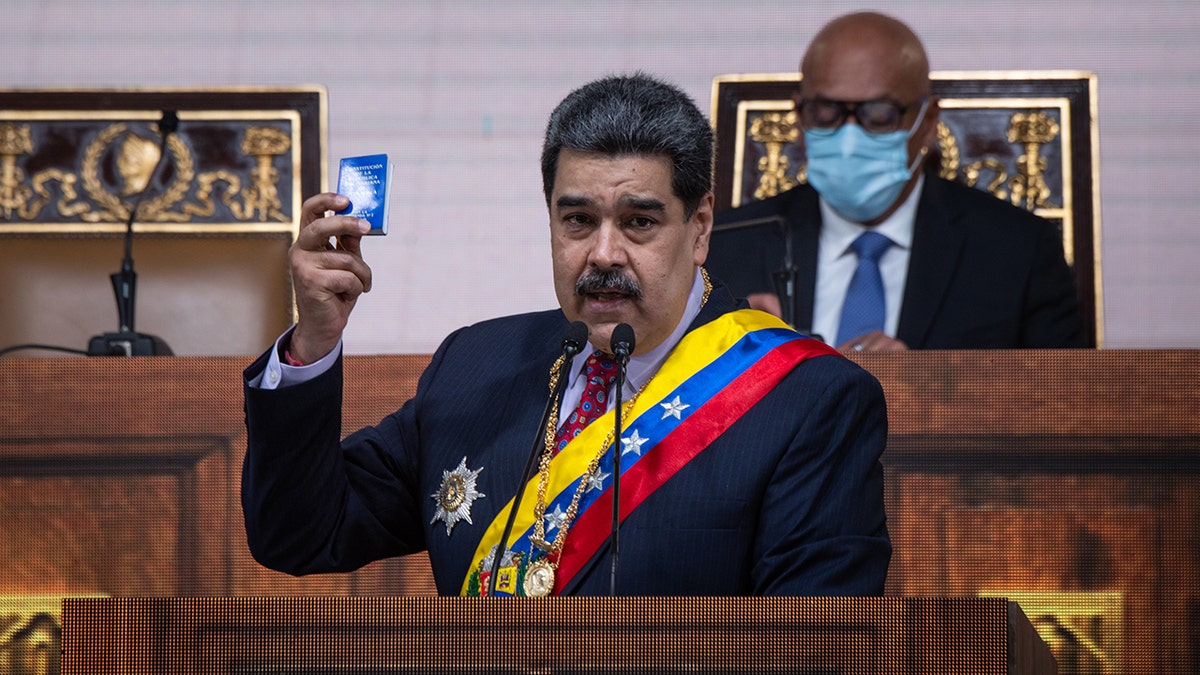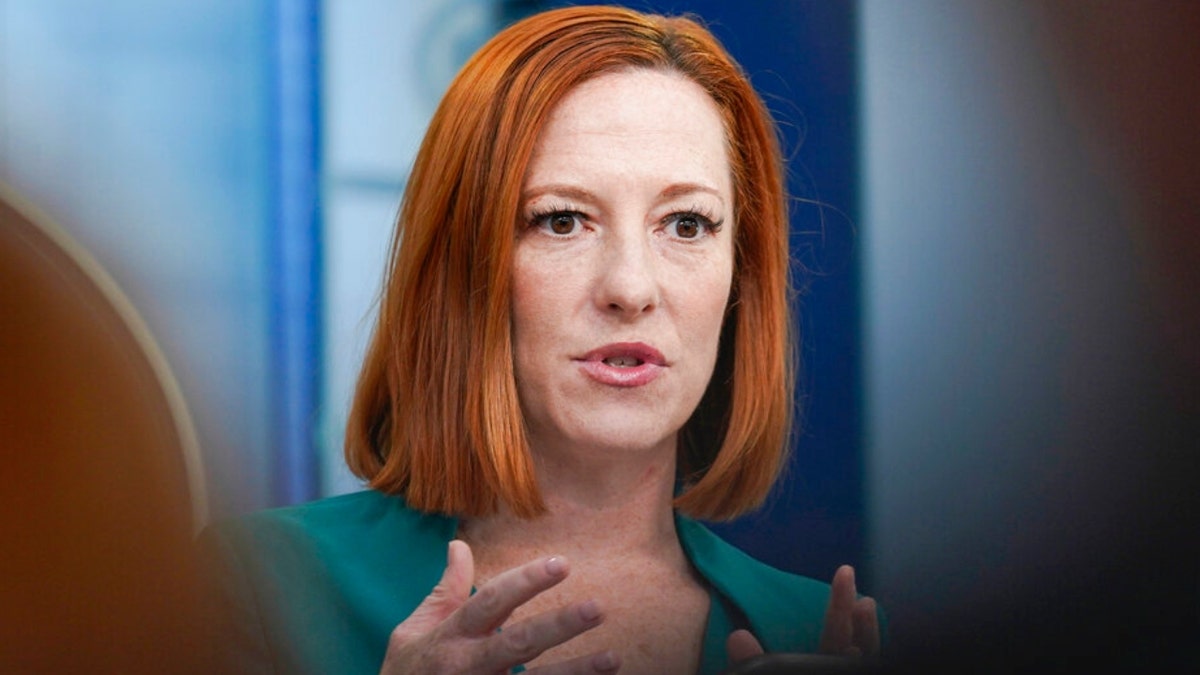President Biden’s courting of Venezuelan oil in an attempt to end reliance on Russian imports and assuage skyrocketing gas prices at home could risk whitewashing the alleged "crimes against humanity" committed by the Venezuelan government and its closeness with Russia.
Several senior Biden administration officials from the White House and State Department traveled to Venezuela on Saturday to meet with the government of Nicolás Maduro and discuss the possibility of easing sanctions on oil exports from the Latin American country as U.S. gas prices soared past levels not seen since 2008.
BIDEN ADMIN COURTS VENEZUELA AS RUSSIAN ECONOMY TAKES HIT FROM SANCTIONS: REPORT
White House press secretary Jen Psaki confirmed the trip Monday, saying officials traveled to Venezuela to discuss "a range of issues, including certainly energy, energy security, but also to discuss the health and welfare of detained U.S. citizens."

U.S. President Joe Biden meets with Finnish President Sauli Niinistö in the Oval Office of the White House March 4, 2022 in Washington, D.C.
The rare meetings came as Russia’s invasion of Ukraine less than two weeks ago accelerated already skyrocketing fuel prices in the U.S. Last week, Venezuela and regional Russian allies Cuba and Nicaragua abstained from a vote condemning Russia for the invasion.
Russia — along with China and Iran — came to Venezuela’s financial aid in 2019 after the Trump administration cut diplomatic ties with the Latin American country and sanctioned its oil exports to the U.S. amid Western accusations of an illegitimate election. The Trump White House recognized opposition leader Juan Guaidó as the real president after Maduro was accused of election fraud.
Maduro is also accused of a host of human rights abuses, including murders, torture and arbitrary detentions. In November, the International Criminal Court opened an investigation into allegations of "crimes against humanity" by the Maduro regime.

Nicolas Maduro, Venezuela's president, delivers a State of the Union address at the National Assembly in Caracas, Venezuela, on Saturday, Jan. 15, 2022. (Gaby Oraa/Bloomberg via Getty Images)
Jim Carafano, vice president of foreign and defense policy studies at The Heritage Foundation, told Fox News Digital that the Biden administration’s strategy in pursuing Venezuelan oil is like "Jimmy Carter redux."
"If you’re doing business with the friends of Russia, you’re helping out Russians. It’s that simple," he said. "Now you have an energy crisis, and your only way to resolve that is to do business with some of the most unsavory countries on Planet Earth who are the biggest human rights abusers."
"They would rather buy oil from our adversaries who will actually use that money to attack American interests than pump oil and gas here, which would actually put more money in the American economy and actually make us more energy independent," he said.
Psaki was pressed by one reporter Monday on whether it’s "worth doing business" with a "despot" like Maduro.
"I think that's leaping several stages ahead in any process," Psaki fired back. "There was a discussion that was had by members of the administration over the course of the last several days. Those discussions are also ongoing, and part of our focus is also on the health and welfare of detained U.S. citizens."

White House press secretary Jen Psaki speaks during a press briefing at the White House, Friday, March 4, 2022.
"So at this point in time, I don't have anything to predict," she added. "It's ongoing. I just don't have anything to convey at this point."
When asked by another reporter whether the U.S. was working on a deal to get detained Americans freed from Venezuela in exchange for lifting sanctions on oil exports, Psaki indicated that was not the case.
"There are different channels," she said. "And obviously we're going to continue to do everything we can to bring anyone who is detained in Venezuela or any other part of the world home, but they happen through different tracks. They're all a part of the conversation with Venezuela writ large, but not at the same time."
CLICK HERE TO GET THE FOX NEWS APP
Carafano told Fox News Digital the strategy "doesn't make any sense."
"The problem is, when you buy oil from Venezuela, essentially what you're doing is you're putting dollars in to prop up the economy and more entrench the Maduro regime," he said. "And at the same time, the only reason why this regime is existing at all, is on life support, is because of support from the Chinese, the Russians and the Cubans. So you have really the most detestable regime in Latin America that’s basically subsisting on these external actors."
Fox News’ Brie Stimson contributed reporting.
























